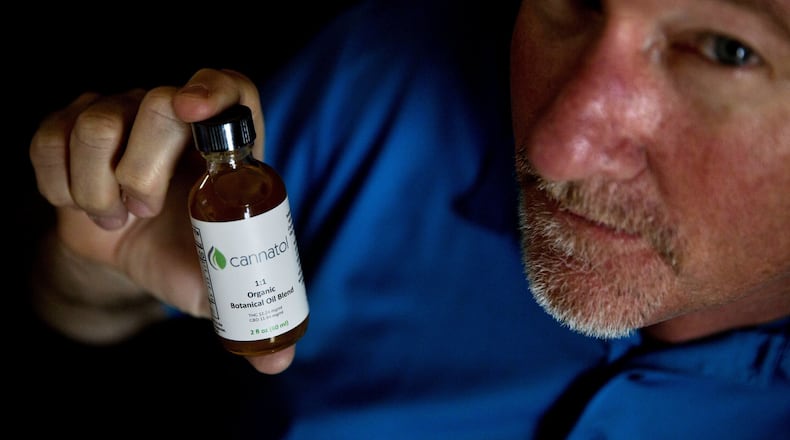2018 update: Gov. Nathan Deal signs bill allowing medical marijuana for PSTD patients, intractable pain
Gov. Nathan Deal signed into law Tuesday a measure that expands the state’s medical marijuana program.
Senate Bill 16 makes six more conditions eligible for treatment with a limited form of cannabis oil allowed in Georgia: AIDS, Alzheimer's disease, autism, epidermolysis bullosa, peripheral neuropathy and Tourette's syndrome. It also allows patients in hospice care to possess the oil.
In 2015, patients and, in the case of children, families registered with the state, were granted the ability to possess up to 20 ounces of cannabis oil to treat severe forms of eight specific illnesses, including cancer, Parkinson's disease and epilepsy.
In a statement, state Rep. Allen Peake — who authored the state House's version of the bill and has been a strong supporter of expanding access to medical marijuana — thanked House Speaker David Ralston, R-Blue Ridge, and Lt. Gov. Casey Cagle for their efforts in getting SB 16 to Deal's desk so that "more hurting Georgians with debilitating illnesses (can) have a ray of hope for a better quality of life."
“My hope is that in 2018 we can fill the gaping hole that still remains, and provide legal access to medical cannabis oil here in our state with a safe, lab tested product produced within our own borders,” Peake wrote. “The job will not be finished until we accomplish this task.”
The newly signed law is the result of a compromise between legislative chambers that keeps the maximum allowable percentage of THC in the form of cannabis oil to 5 percent. THC is the component in marijuana that makes people high. State senators originally proposed decreasing the limit to 3 percent, despite no state public health officials or law enforcement agencies reporting issues with a higher percentage.
As of Tuesday, 1,738 patients in Georgia and 354 doctors have registered with the state to use and administer medical marijuana.
About the Author
Keep Reading
The Latest
Featured





